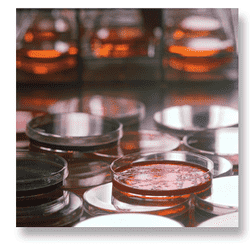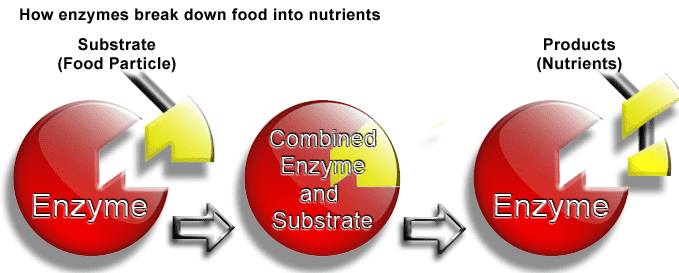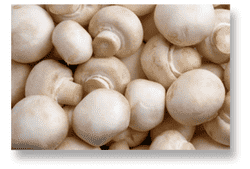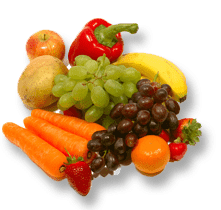You may have heard the phrase, “If the gut is not healthy, neither is the rest of the body”! Fully half of the six stages of nutrition (namely digestion, absorption, and elimination) occur in the digestive tract. What affects the digestive system impacts male and female reproductive system.
Most people fail to realize that the gut is quite literally our second brain, and it actually has the ability to significantly influence the rest of the body! A healthy intestinal tract is important in reducing the burden on the body from substances that alarm the immune system and may stress the reproductive system.
Friendly Bacteria and Your Digestive System Health
 Acidophilus, Bifidus, and Other Probiotic Strains:
Acidophilus, Bifidus, and Other Probiotic Strains:
Probiotics are food supplements comprised of billions of live microbial organisms that have numerous beneficial effects on our health.
Any changes in the body that lower the amount of gut flora (good bacteria) may give rise to health problems, including many fertility problems. Generally anyone who has taken birth control pills and/or antibiotics should consider whether this has altered the flora of the intestine in a way that favors the overgrowth of yeast. Also most men and women who consumed a diet high in sugar are likely to be at risk for yeast overgrowth.
If men and women seeking ways to boost fertility don’t have healthy amounts of beneficial gut flora, the body is not going to be able to benefit from efforts in increasing fertility naturally. Healing fertility issues must begin in the gut.
A Proven Super Strain of Probiotics
From the books I have read on probiotics, I have learned that a proven super-strain of probiotics is the DDS-1 strain, in the acidophilus group. It has been widely researched and its’ abilities documented by scientists such as Dr. Khem Shahani at the University of Nebraska. It has powerful anti-carcinogenic properties and produces effective natural antibiotic substances which can deactivate eleven known disease causing bacteria.
There are 200 different strains of L. acidophilus, some 13 of which have quite strong antibiotic qualities but DDS-1 was shown by Dr. Shahani and his colleagues to be the most effective against pathogens. (Chaitow, p. 184).
I recommend that you ensure adequate intake of friendly bacteria on a daily basis!
I highly recommend the following three probiotic products:
- DDS-1 Acidophilus. This product has Lactobacillus acidophilus and wild-crafted micro algae. The minerals in this type of micro algae “turbocharge” the friendly bacteria, making them multiply faster than any other Lactobacillus product currently available on the market.
- Bifidobacterium bifidum micro-blended with wild-crafted micro algae.
- Full-spectrum probiotics made with the following ingredients:
- lactobacillus acidophilus DDS-1, Bifidobacterium bifidum, Lactobacillus bulgaricus, Lactobacillus casei, Lactobacillus plantarum, Lactobacillus salivarius, Streptococcus faecium, Streptococcus thermophilus, Aceola and Rose Hips blend, wild-crafted micro Algae, Jerusalem Artichoke, Lipase, Amylase, Protease, Cellulase.
Enzymes to Enhance Your Reproductive System:

Unless you are going to eat a 100% raw food diet, you need to supplement with plant-based enzymes any time you eat foods that are cooked or processed, or packaged. By supplementing the body’s natural secretions, enzymes will help digest protein, carbohydrates, and fats in the intestines. By doing this, you address the causes of intestinal distress and help the digestive system improve and do its’ proper job in digesting foods leading to a healthy reproductive function.
Food enzymes can be isolated from pineapples, papayas, figs, pancreas and a mushroom called Aspergillus oryzae. Except for the Aspergillus oryzae, all other isolated enzymes (fruits and pancreatic enzymes) have a very narrow range of activity with regard to intestinal pH.
 The best type of enzymes for digestive purposes are enzymes made from Aspergillus orzyae (plant-based enzymes). These enzymes can function and become active in a very wide intestinal pH range - from 2 to 12. Better yet, if the plant-base enzymes are micro-blended with a mineral rich whole food such as micro algae, it dramatically assists good digestion in the stomach.
The best type of enzymes for digestive purposes are enzymes made from Aspergillus orzyae (plant-based enzymes). These enzymes can function and become active in a very wide intestinal pH range - from 2 to 12. Better yet, if the plant-base enzymes are micro-blended with a mineral rich whole food such as micro algae, it dramatically assists good digestion in the stomach.
Enzymes function better with minerals as cofactors and can be very effective in the digestion of cooked or processed meals.
The enzyme supplement I recommend has the following ingredients: Amylase, protease, lipase, cellulase, lactase, fennel, ginger, cayenne and wild-crafted micro algae.
Balancing digestion by adding more sodium to your diet
Sodium plays a vital role in digestion. Sodium or salt is necessary for balancing fluids and pH in the intestinal tract. I’m talking here about organic sodium or salt as found in green and sea vegetables, NOT commercial salt (sodium chloride) or sea salt. Both commercial salt and sea salt are inorganic (ionic) minerals. The human body does not possess any enzymes strong enough to break the ionic bonds found in inorganic minerals.
Consuming sea vegetables (i.e., kelp, micro algae) or juicing green vegetables daily offers the body organic minerals required to help digestion. Sufficient sodium enables the body to manufacture watery bicarbonates used to neutralize over acid stomach contents. Foods can then be well digested.
In addition, most often for men and women seeking to enhance fertility, their production of hydrochloric acid is often extremely low causing symptoms such as heartburn and indigestion. Low stomach acid can be addressed with sufficient daily intake of organic sodium (Bland, pp. 153-157).
production of hydrochloric acid is often extremely low causing symptoms such as heartburn and indigestion. Low stomach acid can be addressed with sufficient daily intake of organic sodium (Bland, pp. 153-157).
One of the best and quick ways of making sure you are getting sufficient sodium in your body is to juice celery and zucchini every day. These two vegetables give the body a natural diuretic effect and aid in the elimination of carbon dioxide from the body.
The sodium content will neutralize acid ash residue of acidic foods in the body.
High quality dietary fiber
As you increase your intake of fruits and vegetables, you will be getting high quality dietary fiber. Research has shown the health benefits of a diet high in fiber. The benefits include regularity, lower cholesterol, and stabilized blood sugar levels.
Fiber promotes healthy hormonal balance for men and women, and is especially instrumental in a natural fertility program for those with estrogen-dominant fertility health issues, PCOS, or immunological infertility.
 To maintain intestinal hygiene, you need about 35 to 40 grams of different fiber sources everyday (e.g., bran, cellulose, lignin, pectin, etc.), all found in different organically grown, ripe seasonal fruits, whole grains, and colorful vegetables.
To maintain intestinal hygiene, you need about 35 to 40 grams of different fiber sources everyday (e.g., bran, cellulose, lignin, pectin, etc.), all found in different organically grown, ripe seasonal fruits, whole grains, and colorful vegetables.
Eating these foods provides the added fiber that will bulk up in your intestines, gently sweeping the colon clean of extra estrogen, hormones, toxins, waste debris of cellular metabolism and soak up excess toxins. Do not try to “mega-dose” on one type of fiber, like oat bran, as you need each (all) of the different basic fibers for proper bowel cleansing.
Do make a mental note that the following foods in particular are known to add to the healthy condition of your intestine, specifically because of their fiber content:
Chia seeds: Besides being a well-rounded source of both the insoluble and soluble fibers, chia seeds are a rich source of plant protein, potassium, and omega-3 and omega-6 fatty acids.
Prunes: Few foods contain both insoluble and soluble fibers and prunes just happen to be one of these foods. Consume it either raw or dried as a healthy snack. Three pieces of dried prunes will give you 4.2 grams of fiber.
Mangos: From a personal experience, I find dried mangos to help tremendously with colon health in general.
Unheated, Organic Coconut Oil
This is why raw, organic coconut oil is a great product for fighting infections. When coconut oil is consumed, the body transforms its’ unique fatty acids into powerful anti microbial powerhouses capable of defeating some of the most notorious disease-causing microorganisms. Even the super germs are vulnerable to these lifesaving coconut derivatives. Coconut oil is, in essence, a natural anti bacterial, anti viral, and anti fungal agent (Fife, pp.57-76).
 Not all types of coconut oil sold in the market today are effective as an antibacterial product. The one I recommend is unheated/raw, organic, extra-virgin coconut oil that has its’ enzymes and vitamins active and alive especially vitamin E. A good quality raw coconut oil is a brand called Artisana.
Not all types of coconut oil sold in the market today are effective as an antibacterial product. The one I recommend is unheated/raw, organic, extra-virgin coconut oil that has its’ enzymes and vitamins active and alive especially vitamin E. A good quality raw coconut oil is a brand called Artisana.
A summary of the supplements you need as digestive aids
- Enzymes mixed with wild-crafted micro algae - 90 capsules - $36.90.
- Acidophilus mixed with wild-crafted micro algae - 60 capsules - $25.20.
- Bifidus mixed with wild-crafted micro algae - 60 capsules - $25.20.
- Full spectrum probiotics - 60 capsules - $31.50.
(I recommend that you start with a couple of these products but not all of them at once). I will email you a schedule to follow as you start taking these supplements. Click here to receive a questionnaire so I can learn more about your health background. After receiving your answers to the questions, I’ll be able to customize a specific supplement program for you starting with mild supplements followed by stronger supplements to help enhance fertility.
Important note: Do not confuse systemic enzymes therapy with digestive enzymes. They are different types of enzymes.
Other supplements needed for natural treatment of infertility
References
Barker, Jason, N.D. (May 2003). “Skin Health, Eczema, and preventative Strategies.” Townsend Letter for Doctors and patients pp. 56-58.
Bland, Jeffrey. (1996). The 20 Day Rejuvenatino Diet Program. Los Angeles: Keats Publishing.
Chaitow, Leon and Natasha Trenev. (1990). Probiotics. Hammersmith, London: Harper Collins publishers.
Finnegan, John. (1993). The Facts About Fats. Berkeley, CA: Celestial Arts.
Fife, Bruce, N.D. (2001). The Healing Miracles of Coconut Oil. Colorado Springs, CO: HealthWise.
Mercola, M.D. “Beware bacteria growing in your gut can influence your behavior.”
Contact me with your questions, or click here if you're interested in a free assessment.